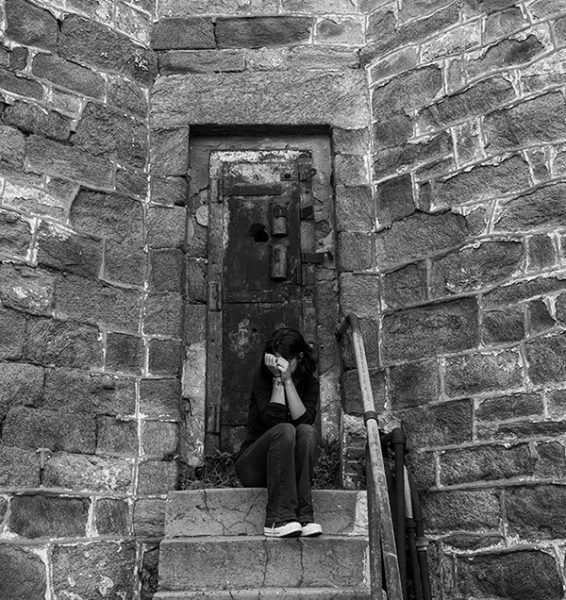Sexual Harassment, Women, and How to Show Support
Most women will experience some type of sexual harassment if they haven’t already. Let’s talk about the numbers, and how we can show support.
March 26, 2021
Like every woman I know, I’ve experienced some form of sexual harassment. I was 12. My friends were 11, 13, older, younger. Around this time last year, I covered the changes to Title IX under Betsy DeVos. This year, sexual harassment has hit the headlines for different reasons. As the world is reopening, we are seeing assault rates rise rapidly, escalating in both violence as well as commonality. The death of Sarah Everard comes to mind, as does the motive of the mass murderer in Atlanta, who was known to fetishize Asian women until he killed six of them.
Sexually based crime is on the rise, and yet, many women don’t report what happened to them, and according to some studies, around 60.4% don’t even realize that what happened to them is considered rape. Rape is, by legal definition, “an unwanted sexual experience obtained through force or the threat of force or a sexual experience they did not consent to because they were incapacitated.” This can refer to sexual interaction that occurs while one or both parties are drunk, as well as the Law-and-Order-SVU style rape that people associate with the fictional Hudson University.
Furthermore, teenagers are only 5% likely to report rape or harassment to the police, and 25% report to school officials. This is because a lot of us don’t view them as crimes worth reporting, or because it’s just easier to move on without reporting. And it is easier to pretend nothing happened. I ask you to imagine how it would feel to be David facing down Goliath. Maybe Goliath is your close friend, who may have done something, but you can’t remember. Maybe Goliath is a beloved member of the community. Put yourself in the shoes of David. Would you really be confident enough to use your sling-shot, knowing that you may be made into a social pariah?
Even when young women do report sexual harassment, it is rare that something happens. RAINN reported that out of every 1,000 rapists brought to trial, only 5 will go to jail for their crimes, and the time that they serve isn’t promised. Every few years, the social media echo chamber will remember the case of Brock Turner, who assaulted a woman behind a dumpster and received no jail time for his brutal and heinous crime. Furthermore, in Brighton in 2016, a woman reported her stalker to the police five times and not only received no protection, but was fined by the police and subsequently murdered by the man stalking her.
Women don’t come forward, and even when they do, they’re not always met with acceptance. 8 out of 10 rapists are people the victim knows, meaning that they are already members of the victim’s community. Furthermore, 1 in 6 women are raped in their lifetime, and 33% of those women contemplate suicide; it is incredibly important that when women reach out about their negative experiences, rape, harassment, and otherwise, men listen.
Men claim they listen, but they don’t offer the emotional support that so frequently women are seeking. Instead of automatically saying “I’m sorry that happened to you,” men question if the event happened. “Are you sure you’re remembering that right? Are you sure you said no?” It’s frustrating to victims who have heard this all before, who are constantly questioning whether or not they even were raped because they didn’t technically say no, but they didn’t say yes either, so, like, where does that leave them? While asking these questions may seem, in context, supportive, they’re not. A more supportive approach would be to just listen, hear what they have to say, and leave the questions for later. Another way to be supportive is to push for more female representation.
Despite changing societal norms, men still hold the power to change laws and enforce them. Only 26.4% of the United States Congress is female, and in New Jersey, only 30% of the state legislature is female. While men are capable of making this change, they often don’t, choosing to elect accused rapists such as Brett Kavanaugh to the Supreme Court, as well as electing presidents with various sexual assault allegations against them (referring to both Joe Biden and Donald Trump). In a country that considers itself progressive in terms of women’s rights, this continued support of rapists both in homes, in schools, and in government offices is disgusting and offensive to anyone who considers themselves allies to victims of rape.
There’s an easier way to ally yourself with victims. It doesn’t require being 18, nor does it require lobbying for change. It’s as simple as taking this one thing seriously. When your girlfriend says your friend creeps her out, believe her, keep an eye on him, don’t leave him alone with her. When your sister says that something happened to her at the grocery store, believe her, don’t force her to report it, just listen. When your friend says that his girlfriend asked to have sex until he gave in, believe him, tell him that it isn’t his fault. Don’t make a joke about it, don’t say he must have wanted it, don’t do anything but listen and console. It’s that easy.
Before I conclude, I’d like to rehash the definition of consent. Consent is defined as “permission for something to happen or agreement to do something.” According to RAINN, it “cannot be given by individuals who are underage, intoxicated or incapacitated by drugs or alcohol, or asleep or unconscious.” Furthermore, it cannot be given under threat of violence, nor can it be given in which one party is naturally in a position of power over another (such as a parasocial relationship, one between a boss-employee, or one between a teacher-student). Consent can be withdrawn at any time, and if your partner refuses to acknowledge this withdrawal of consent, it is no longer consensual sex.
Things have gotten a lot better in the past few decades in terms of sexual education as well as sexual violence rates. But there’s still a long way to go, and in order to change things for good, we all have a lot to learn.
Sources Cited:
Meta-Analysis on the Prevalence of Unacknowledged Rape
“You just don’t report that kind of stuff”: investigating teens’ ambivalence toward peer-perpetrated, unwanted sexual incidents
RAINN.org – Statistics
Teenager was fined for reporting stalker to police five times before he murdered her
Center for American Women in Politics at the Eagleton Center for Politics
Resources for victims of rape and sexual harassment can be found at www.RAINN.org







